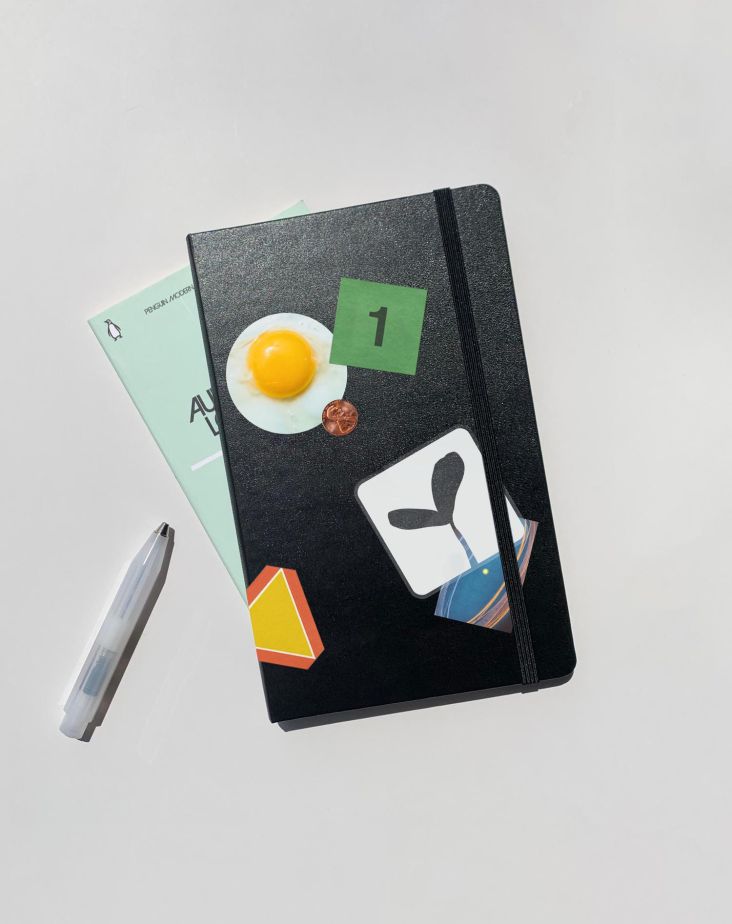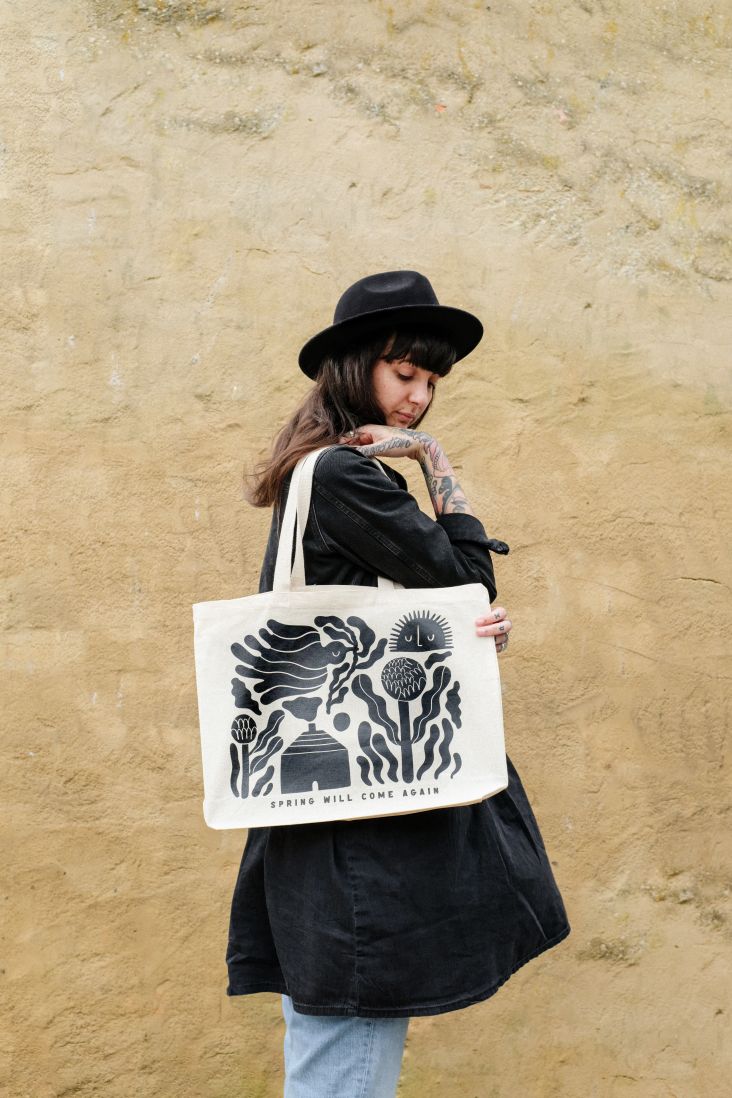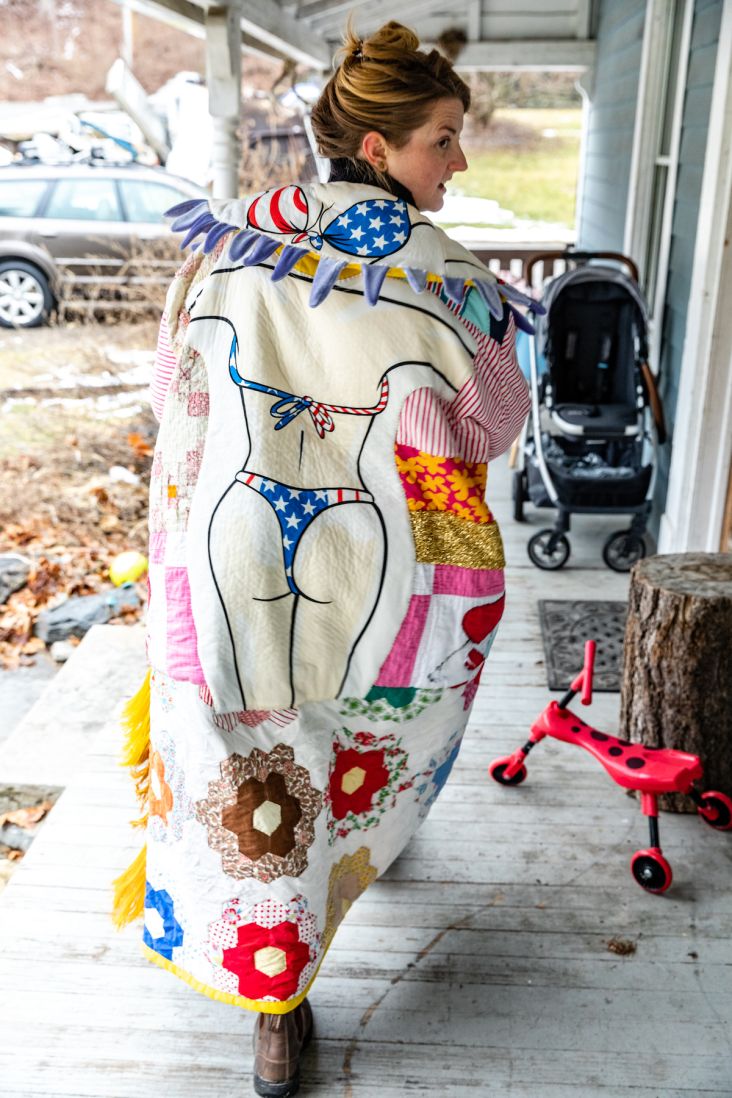Lucky Generals co-founder Andy Nairn on how luck can improve your creativity
With nearly 30 years in the advertising industry under his belt, Lucky Generals co-founder Andy Nairn knows luck is as important to success as hard graft. With his new book Go Luck Yourself revealing how chance can play its part in the creative process, we caught up with Andy to hear how you can harness the power of luck.
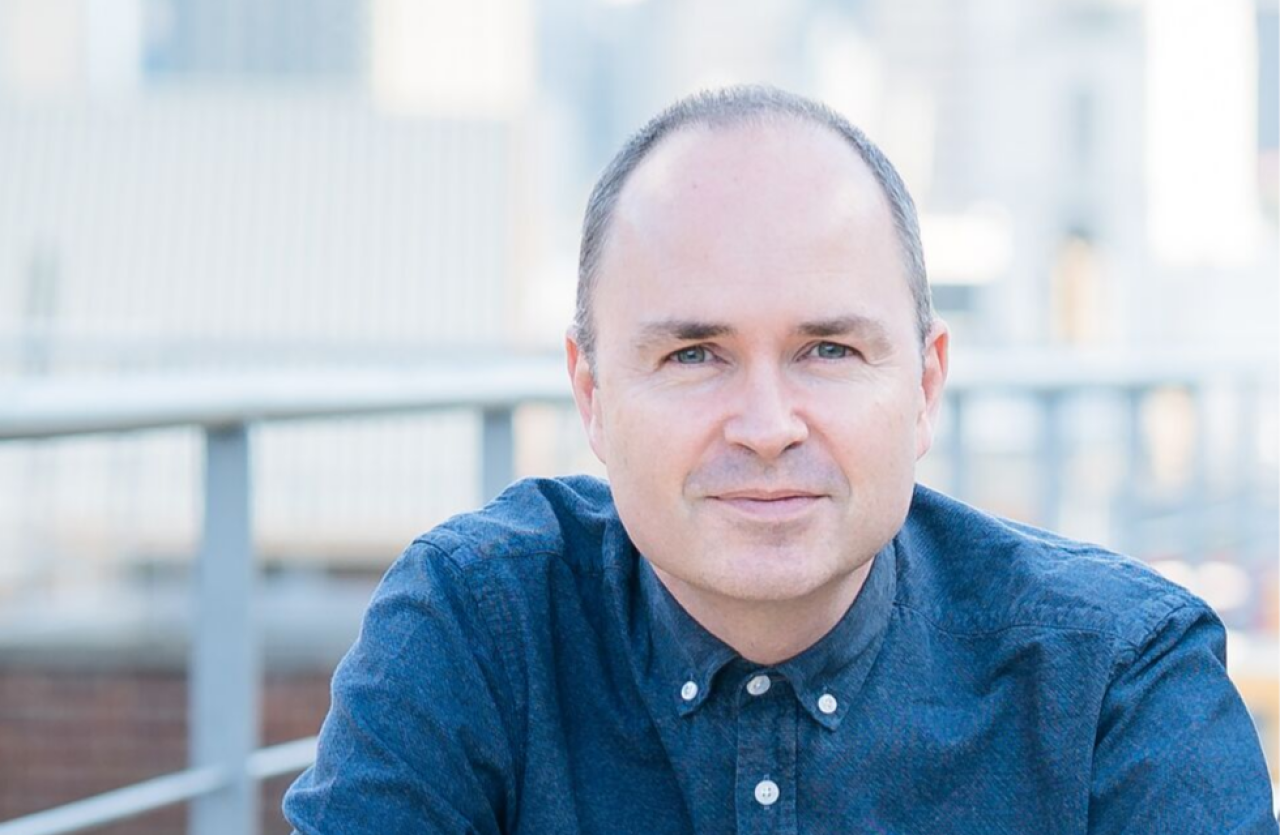
Having cut his teeth on advertising by working at agencies on both sides of the Atlantic, Andy rolled the dice and set up his own agency with friends Helen Calcraft and Danny Brooke-Taylor. Named after Napoleon's famous quote, "just bring me your lucky generals", the agency has more than lived up to its name by securing work with Amazon, Virgin Atlantic, Yorkshire Tea and many more. And out of the last six years, Lucky Generals has been shortlisted for Agency of the Year five times.
"I stumbled into advertising, really," Andy tells Creative Boom when speaking about how luck has played its part in his own career. Having originally studied law at Edinburgh University, he switched to advertising on the advice of a tutor so he could use his skills in a more creative environment.
"My other big lucky break was meeting Helen and Danny," says Andy. "I know so many brilliant people who would love to set up their own business, but the planets don't quite align. Obviously, you need talent, but you also need partners that you would trust with your life. Then you all have to want to do it at the same time, and even your families have to be on the same page. Oh, and it helps if you can have a laugh, too – even when (especially when) you experience difficult moments, as you inevitably will. I definitely hit the jackpot with those two."
To tie in with the launch of Go Luck Yourself: 40 ways to stack the odds in your favour – which is available from Bookshop.org – Andy shares how luck has played its part in his work, and how you can make fortune work for you.
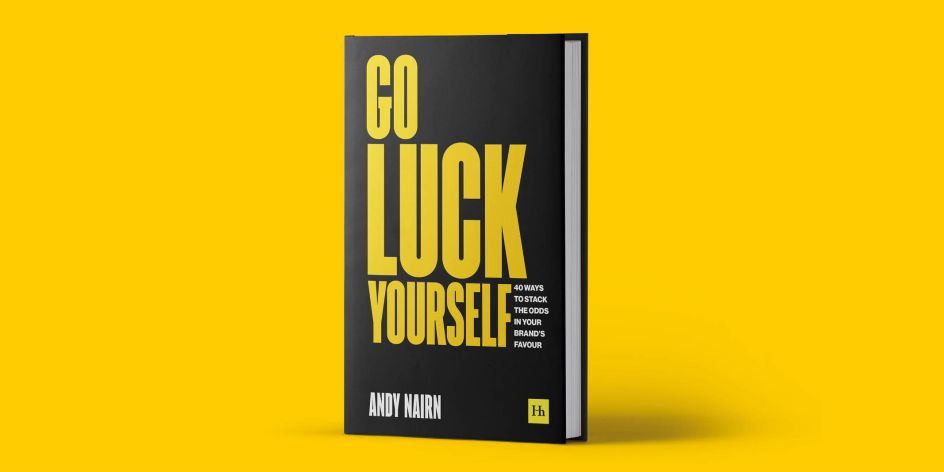
When has Lucky Generals harnessed the power of luck?
Our very first campaign was to tackle homophobia in football for Paddy Power. The problem was that the budget was tiny – but that just made us think harder. Our campaign was literally a case of creativity on a shoestring – as we sent rainbow-coloured bootlaces to every professional player in the country and whipped up a campaign of support on social media. Eight years on, the idea has prompted a storyline on Coronation Street, a rainbow arch over Wembley Stadium and the England team wearing them at the Euros. There's a lesson for us all there – sometimes, bad luck (like a budgetary restriction or pressing deadline) can turn out to be a blessing in disguise.
Another example of this would be our work for Amazon. We became their first British agency when we were only a year old and were conscious that they might be worried about our size. So again, we turned that apparent disadvantage into a strength – by emphasising that being small meant that we'd be more committed and agile. This played really well with them – as it turned out, Jeff Bezos had a rule that if a team couldn't share two pizzas, it was too big. Since then, we've created a long-running global campaign for them, featuring singing boxes, and we've also become the first British agency to win the American public's vote for the best Super Bowl campaign. In fact, our latest Super Bowl spot is currently nominated for an Emmy, so fingers crossed for that.
There are lots of other examples – like how we won the Yorkshire Tea business, despite not presenting a great pitch because the client could see the glimmer of potential in our idea. Or how we stumbled on a great strategy for Pot Noodle after reading a story about a gymnast. Or how we re-positioned Kahlúa after discovering its connections with cult film. I bet most creative people have similar stories – it's just that we don't like to admit that fortune has lent us a hand!
Lucky can be a taboo term. Why is it important to challenge that?
I think this taboo is unhelpful for a couple of reasons. First of all, it breeds complacency. By telling ourselves that our success stories are entirely down to our own hard work and brilliance, we set ourselves up for a fall. Science has shown that human beings are more likely to succeed when we're mindful of all the good things we have been given – and I think the same applies to organisations. Often the creative breakthrough comes from simply appreciating an asset (like the company's name, provenance, iconography or data) that the organisation has forgotten about.
Secondly, it creates a culture where the answer to everything is hard labour. We've all heard that expression, "There's no such thing as luck – the harder you work, the luckier you get." Now, obviously, as an entrepreneur, I'm a great believer in sheer graft. But I also know (as any creative person does) that the best ideas don't always come from sitting at a computer all day, slogging away at the solution. Instead, you're more likely to make a breakthrough if you go for a walk, watch a movie, listen to some music, read a magazine on a random subject and so on.
The good news is that once you recognise that luck exists, you can take deliberate steps to game the system and stack the odds in your favour. That's what my new book Go Luck Yourself, is all about.
Practise being lucky every day (make sure you actively try to create these happy accidents rather than just sitting back and hoping they will happen).
How can creatives improve their luck?
In the book, I describe how the record producer Quincy Jones works. He's got this lovely phrase, which he has put on the wall of his recording studio: "Let the Lord walk through the room." In other words, don't plan everything to within an inch of its life; deliberately leave room for unexpected things to happen. He's sold hundreds of millions of records that way, so I reckon we could all take a leaf out of his book.
Beyond that, I always come back to the same four lessons. Appreciate what you've got (creatives are often their own worst critics, but everybody will have a superpower that they're not exploiting fully, so start with that). Look out for opportunities everywhere (creative ideas often come from seemingly random collisions, so make sure your life is fizzing with lots of non-work stimuli, as you never know when these will come to your rescue). Turn misfortune into good fortune (as with that Rainbow Laces example, the best ideas are often born out of something that initially looks like a problem). And finally, practise being lucky every day (make sure you actively try to create these happy accidents rather than just sitting back and hoping they will happen).
What are the benefits of embracing luck…and what are the downsides creatives need to watch out for?
By embracing luck, creatives are more likely to come up with genuinely original ideas. It's like how David Bowie used to write lyrics – by cutting up newspapers and throwing the pieces in the air until they created new phrases and patterns. It's the same with Tom Waits – he switches two radios on at the same time, on different stations, and listens out for unusual clashes or connections. And as I said before, it's also a helpful way to guard against the creative's greatest enemy: complacency. The more we appreciate our luck, the less likely we are to be arrogant, lazy or formulaic when it comes to a new brief.
I guess the only downside might be if you simply hope for good fortune. But that's not what my book is about. Instead, it's all about taking active steps to improve your odds. Hence the advice to "practise being lucky every day".
Can creatives pay luck forwards? And if so, how?
Creatives can definitely pay luck forward. In fact, we positively should! After all, we've all had a helping hand from someone along the way – I really don't believe in the idea of "the self-made man or woman"; that's another myth that comes from a refusal to acknowledge luck. So if you can, give people a hand up, whether that's through mentoring, informal advice, or just casting an eye over someone's work. In particular, those of us who have been lucky by birth (I'm writing this as a classic older, white, straight bloke) should be conscious of our privilege and try to even things up.
In my case, I'm giving all my royalties from Go Luck Yourself to a great organisation called Commercial Break. They help working-class kids get a lucky break into the creative industries. I liked the idea of a book about luck bringing fortune to others, and I hope you do too.




 by Tüpokompanii](https://www.creativeboom.com/upload/articles/58/58684538770fb5b428dc1882f7a732f153500153_732.jpg)



 using <a href="https://www.ohnotype.co/fonts/obviously" target="_blank">Obviously</a> by Oh No Type Co., Art Director, Brand & Creative—Spotify](https://www.creativeboom.com/upload/articles/6e/6ed31eddc26fa563f213fc76d6993dab9231ffe4_732.jpg)







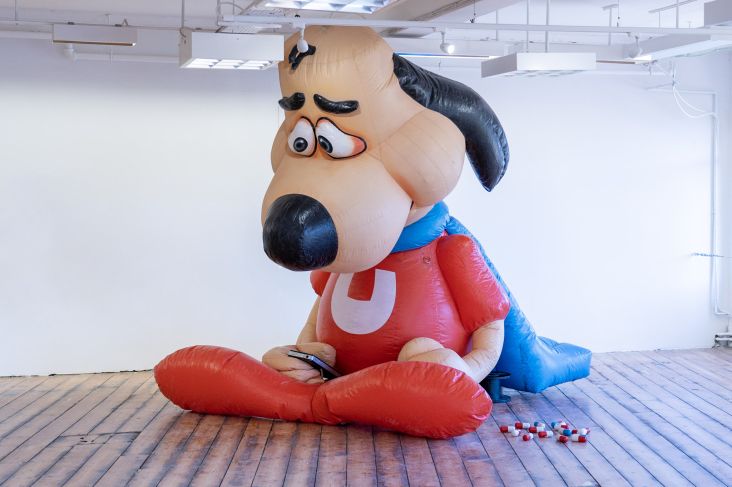
, past winner](https://www.creativeboom.com/upload/articles/25/25c84cd6dba08c005384e8378d0ff90d3dd7cbd2_732.png)
